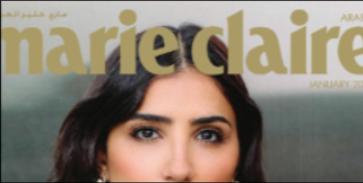The Hybrid Business Model in Journalism: A Case Study of Mediaquest
The Hybrid Business Model in Journalism: A Case Study of Mediaquest
In a time when conventional revenue sources—that is, print subscriptions and advertising—can no longer support media organizations alone, the hybrid economic model in journalism has grown even more important. By combining several revenue sources—digital advertising, events, branded content, subscriptions, and consulting services—this approach helps media companies to keep editorial freedom while guaranteeing financial sustainability. One shining example of a hybrid journalism project in the MENA area is Mediaquest, a Dubai-based media company publishing Marie Claire Arabia, Haya, and Communicate.
Operating at the junction of content development, event planning, and advertising consulting, Mediaquest may diversify income sources and serve both B2B and B2C markets. Every one of its platforms has a different function inside the hybrid approach. Marie Claire Arabia and Haya, for example, target wealthy Arab women using branded content and influencer relationships to draw luxury fashion and beauty companies. Communicate positions itself as a thought leader with industry insights, opinion articles, and sponsored editorials, thereby serving marketing professionals and agencies.
The way Mediaquest incorporates events and experiential marketing into its editorial brands sets apart its strategy. The Communicate brand is closely associated with the event division of the business, planning well-known conferences such the Communicate AI Conference and co-hosting the MENA Effie Awards, a distinguished marketing awards event. Through sponsorships, ticket sales, and alliance packages, these events not only bring in big money but also strengthen the publishing's power in the regional media scene.
Mediaquest also runs its B2B services using its journalistic brands. Consistent, high-quality journalism builds confidence that enables the business to provide corporate clients seeking to match reliable media platforms with content marketing and strategic consultation services. This makes its journalism not just informative or entertaining but also a starting point for commercial prospects.
Mediaquest resiliency against market volatility also comes from the hybrid model. Paid events or sponsored research reports allow the business to rely on other income during market upheavals include changes in social media algorithms or a cut in ad budgets. Mediaquest keeps editorial freedom and operational consistency by not depending just on one income source.
The hybrid model does not, however, present without difficulties. Particularly with sponsored material, Mediaquest must continuously balance editorial integrity with business constraints. Maintaining audience confidence depends on openness, moral rules, and unambiguous labeling. Furthermore, depending on events and alliances need for ongoing innovation and great logistical execution to remain competitive.
Mediaquest represents, all things considered, a Middle Eastern successful hybrid journalism paradigm. It stays both a cultural impact and a commercially successful company by combining conventional media with new-age monetizing techniques—editorial publication, events, branded content, and consulting. For media companies looking for digital era sustainability, this approach presents a convincing road map.
